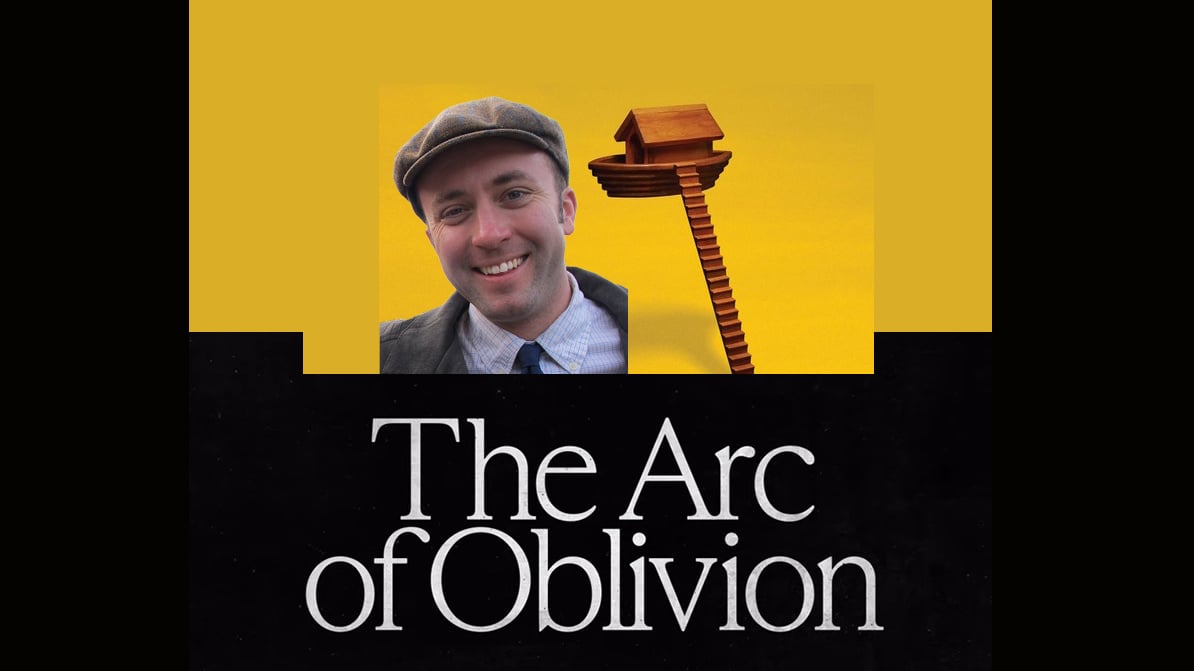
Ian Cheney, director of The Arc of Oblivion
In a universe that erases its tracks, why are humans so determined to leave a trace of themselves?
The Arc of Oblivion, a film by Emmy-nominated director Ian Cheney, playfully explores this quirk of humanity. Set against the backdrop of the filmmaker's quest to build an ark in Maine, the film investigates the universal desire to preserve memories and achievements.
The Neumann Inspires Film Festival is hosting a free screening of The Arc of Oblivion on Friday, September 27, in the Meagher Theatre. Watch a two-minute trailer and reserve a seat at the 7 p.m. show.
Cheney’s physical ark is his challenge to the arc of time, which tends to bury even significant human accomplishments. Archaeologists can attest to the truth of buried cultures.
From a field in Maine, the film heads to salt mines in the Alps, fjords in the Arctic, and ancient libraries in the Sahara to illuminate the strange world of archives, record-keeping, and memory.
The film weaves stop-motion animation and spellbinding cinematography with fascinating interviews from experts in the fields of science, culture and art to address the enduring question of what information deserves preservation.
According to a review by Alissa Wilkinson of The New York Times, “Cheney isn’t building an ark to rescue humanity, or to talk about Noah. Instead of what passes away, he’s thinking about what can be rescued from some nameless, shapeless future obliteration.”
Near the end of The Arc of Oblivion, an executive producer of the film reads “Ozymandias,” Percy Bysshe Shelley’s famous 1818 sonnet about the decaying statue of a king in the desert. The statue is inscribed with the boastful claim to “Look on my Works, ye Mighty, and despair!”
However, “Nothing beside remains,” the poem continues, noting that the “lone and level sands stretch far away.” Even the greatest works and memories of man seem foolish when they are subjected to the ravages of time.
Cheney encourages audiences to ponder what in this world is worth saving and whether anything can last. Neumann faculty members will lead a discussion after the film.
Ian Cheney has directed documentaries about urban agriculture in New York City, the unhealthy abundance of corn in the American diet, light pollution, and the terraforming of Mars. He holds bachelor's and master's degrees from Yale University.
The event is the first of three screenings sponsored by the Neumann Inspires Film Festival, which is scheduled for April 4-5, 2025.
 CHALLENGE
CHALLENGE





